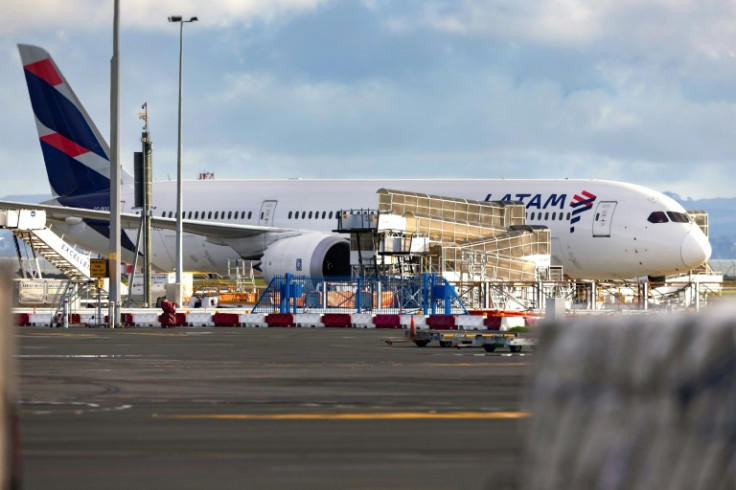
Airlines on Monday scrapped flights from Colombia, blaming dwindling fuel stocks, then reinstated most of them as industry officials and the government disagreed on the cause of the interruption.
National carrier Avianca, which according to Colombia's air transport regulator canceled 24 flights Monday, said in a statement it had been advised by suppliers of a cap on kerosene deliveries "for the rest of the month."
Avianca flights to Sao Paulo, Santiago, Mexico City and Cancun were affected, according to the FlightAware tracking platform.
Latin America's largest airline LATAM said it had to cancel 36 flights scheduled for Tuesday due to "restrictions on the supply of Jet A1 aviation fuel in some airports."
But later Monday, both companies said operations were back to normal and that they had received assurances of uninterrupted fuel supply.
The government denied there had ever been a shortage, and blamed fuel distributor Terpel, owned by Chilean oil company Copec, for not doing its job.
Terpel blamed problems at the Reficar refinery in Cartagena, owned by state oil company Ecopetrol.
Ecopetrol said in a statement an "electrical failure" had affected production at Reficar between August 16 and 18.
President Gustavo Petro insisted the refinery problem had been fixed "without causing problems," adding on X that it was incorrect "to report that flight cancellations had to do with the August 16 Reficar blackout."
Ecopetrol said earlier Monday it would import 100,000 barrels of aviation fuel, possibly leading to an increase in ticket prices, according to the transport ministry.
The International Air Transport Association (IATA) had warned on Sunday that a fuel shortage would lead to flight cancellations and flights carrying fewer passengers per plane.
According to IATA, which represents more than 300 airlines, distributors suspended fuel supply to 11 terminals, while for many others they issued alerts for "critical" stock levels.
The Aerocivil airport authority, however, insisted jet fuel stocks were "sufficient."
Petro said there would be "investigations" by market regulators.
The opposition has accused the president, who is seeking to reduce the Colombian economy's dependence on oil exports, of having appointed inexperienced people to head Ecopetrol.




